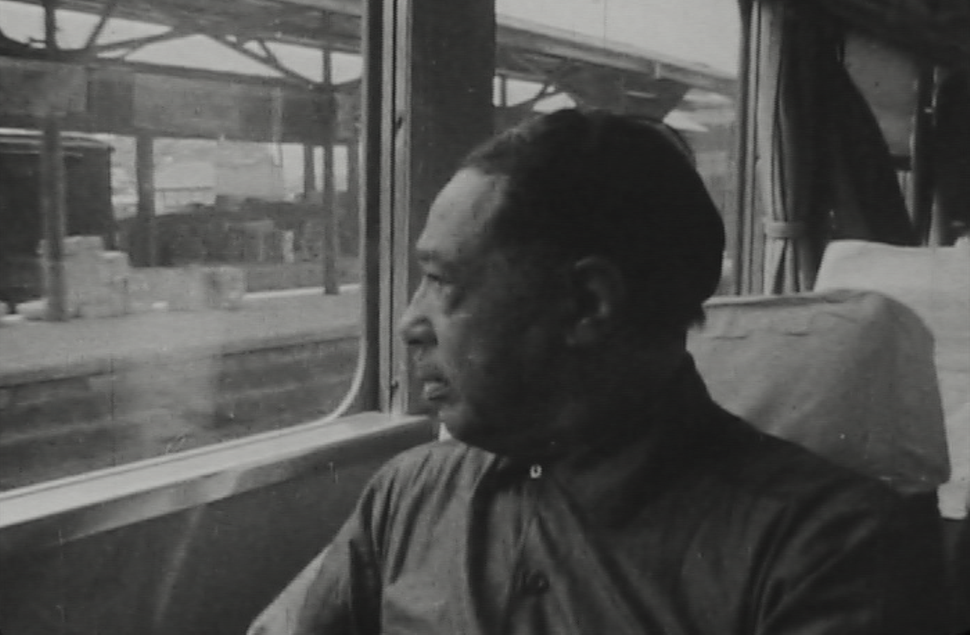“There’s nothing more, well, naked than writing a play. If you write a book and the critics pan it, you can comfort yourself by believing that you are a misunderstood genius, but when most of an audience walks out on you after the first act, it’s your own fault, and it’s one of the worst in the realm of human experience.”
John P. Marquand, Women and Thomas Harrow
Archives for November 2013
TT: See me, hear me (cont’d)
 I’ll be hitting the road on Wednesday morning for two more Duke-related out-of-town appearances:
I’ll be hitting the road on Wednesday morning for two more Duke-related out-of-town appearances:
• On Wednesday at 6:30 I’ll be lecturing about Duke at the Kansas City Public Library’s central library, which is at 14 W. 10th St. Admission is free.
For more information, go here.
• On Sunday at 1:30 I’ll be joining three other authors for a panel discussion at Miami Book Fair International. My fellow panelists are Deborah Solomon (American Mirror: The Life and Art of Norman Rockwell), Brian Jay Jones (Jim Henson), and R. Clifton Spargo (Beautiful Fools: The Last Affair of Zelda and Scott Fitzgerald).
For more information, go here.
TT: All caught up
Given the recent frenzy of activity that I’ve been reporting in this space, I’m sure you weren’t surprised to find that several weeks went by without my posting anything new in the right-hand column. Fortunately, things calmed down just a little bit over the weekend, thus allowing me to completely update the Top Five and “Out of the Past” modules with brand-new postings. Take a look!
Special note should be taken by Christmas shoppers who’ve already purchased copies of Duke: A Life of Duke Ellington for their nearest and dearest (and if not, why not?) but have additional unfilled slots on their gift lists. Click on the links and order with impunity.
TT: Just because
A 1964 commercial for Muriel Cigars, featuring Edie Adams and Stan Getz:
(This is the latest in a series of arts-related videos that appear in this space each Monday and Wednesday.)
TT: Almanac
“What is always overlooked is that although the poor want to be rich, it does not follow that they either like the rich or that they in any way want to emulate their characters which, in fact, they despise. Both the poor and the rich have always found precisely the same grounds on which to complain about each other. Each feels the other has no manners, is disloyal, corrupt, insensitive–and has never put in an honest day’s work in its life.”
Elaine Dundy, Elvis and Gladys
GRAPHIC NOVEL
Alison Bechdel, Fun Home: A Family Tragicomic. Given the (understandable) fuss that’s being made over the new Lisa Kron-Jeanine Tesori musical version of Fun Home, it strikes me that those who haven’t read this powerfully poignant 2006 comic-book memoir about the suicide of the author’s closeted gay father should do so at once and see what they’ve been missing. The dry, detached candor and jagged emotional edges of Bechdel’s first-person narration are a big part of what made Fun Home so distinctive, and they’re largely missing from the softer, sentimentalized stage version. The real Fun Home is a much tougher and far more impressive piece of work (TT).
GALLERY
John Marin: The Breakthrough Years (Meredith Ward Fine Art, 44 E. 74th St., up through Jan. 11). Subtitled “From Paris to the Armory Show,” this exhibition of twenty-eight watercolors painted between 1904 and 1914 by the pioneering American modernist shows with breathtaking clarity how he broke free from received ideas about representation, assimilated the language of European cubism, and forged his own distinctively American style. Once again, a Manhattan gallery does what one of New York’s art museums should have done–and gets it exactly right (TT).
BOOK
The Leonard Bernstein Letters (Yale, $38). A collection of 650 letters to and (mostly) from the conductor-composer. The list of correspondents is spectacularly wide-ranging–it includes everyone from Aaron Copland to Harpo Marx–and the contents shine an unsparingly bright light on Bernstein’s ever-complex interior life. Indispensable reading for anyone interested in American music in the twentieth century (TT).
